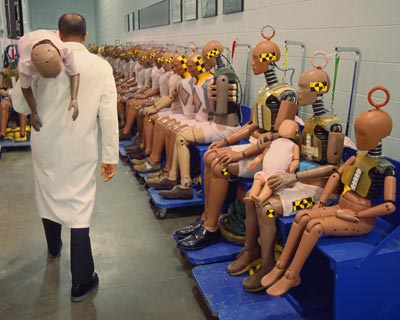Alec Ross, author of The Industries of the Future, was asked in a Knowledge@Wharton interview about the next wave of work and wealth, and he echoed the sentiment in Tyler Cowen’s Average Is Over, noting that only those committed to continued education and possessing a flexible spirit will get ahead. Well, that’s good to know, but one obvious thing that often goes unmentioned in these discussions is what happens to the very large number of people who won’t be able to adapt to rapid change and do get left behind. That’s likely and must somehow be addressed.
An excerpt:
Question:
As robots and codification and all of these other industries that you identify in the book become more prominent, how do you feel that’s going to change the world balance of power? How does that change the global economy and who has power and who doesn’t?
Alec Ross:
That’s a tremendous question. First of all, I’d put it into a certain kind of binary. The first is within the architecture of the 196 sovereign nation states, and the second is within those nation states, what kinds of individuals do well and what kinds of individuals do poorly.
You can live in a country that is prospering, but you can be doing very well or you could be doing very poorly. Or you could be living in a country that’s floundering, and you might be able to be doing pretty well. The principle political and economic binary of the 20th century was right versus left. In the 21st century, I think it’s open versus closed, defining open as upward economic mobility not confined to elites; social and cultural and religious norms not set from a central authority and broadly rights respecting for women, minorities of all type and what have you.
I believe that the centers of innovation and the wealth creation and job creation that come from that will be in the more open societies for the industries of the future. People conglomerating around what will probably be ten to 15 major centers over the next fifteen years. We already see this in development now. The more open societies will be those that compete and succeed most effectively.
Looking at this on an individual level, it’s going to be a terrible time to be mediocre at your job if you’re in a high-cost labor market. It’s an absolutely brutal truth. When people in Baltimore are competing against people in Bangalore, not just based on cost of labor but also quality of labor, which is now increasingly going to be the case, being more middle class or working class in the United States or Western Europe isn’t going to mean you’re starting life on second base to the degree that it did in the past.
You’ve got to be a committed lifelong learner. You’ve got to be adaptable. Otherwise you’re going to be left behind even if your country is producing substantial growth.•
Tags: Alec Ross

